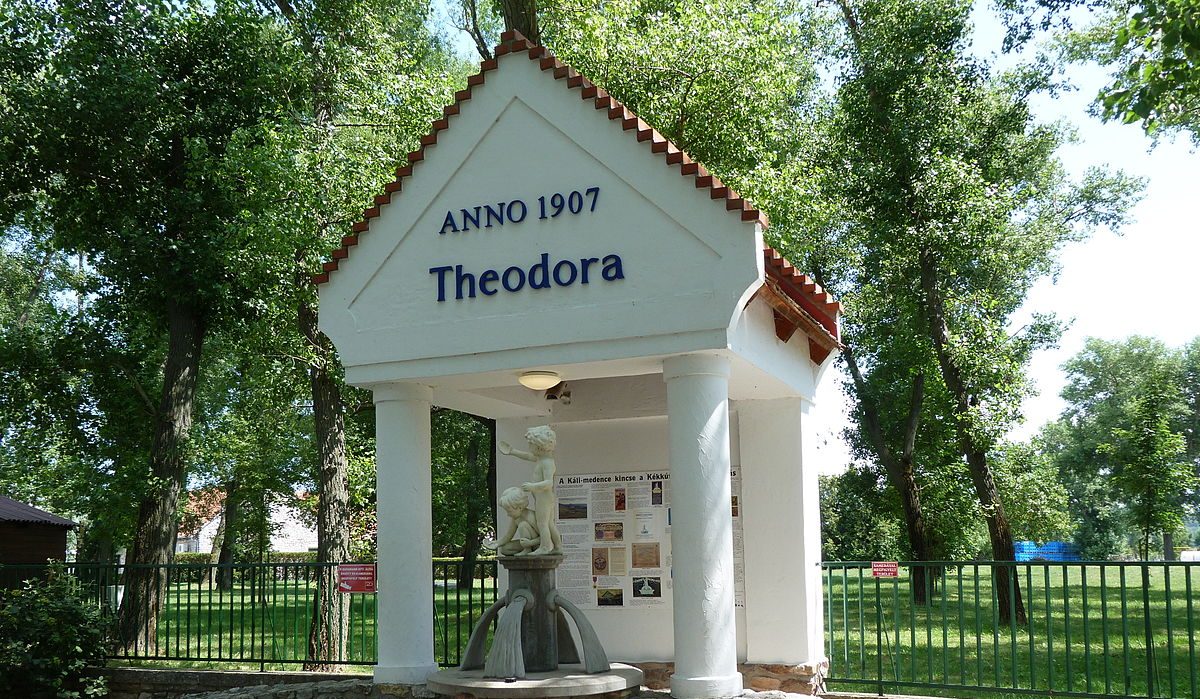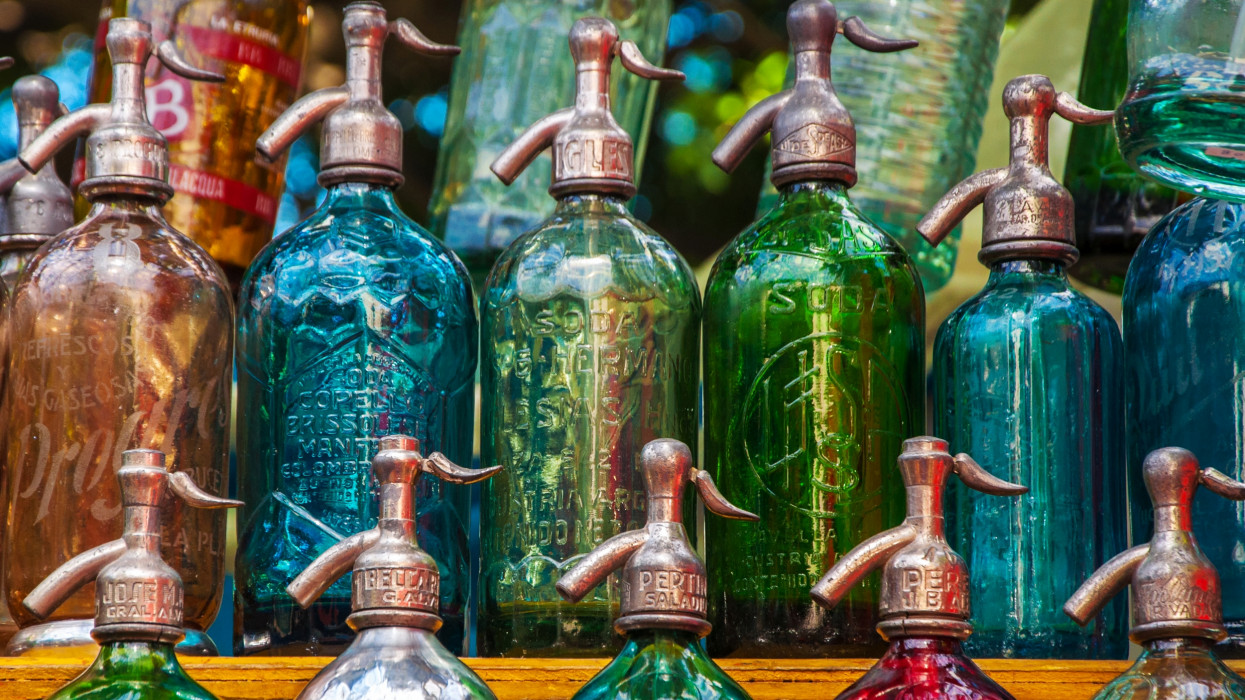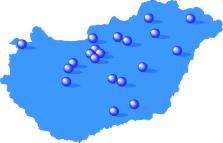Twelve high school students have been recognized for making short films aimed at their peers to highlight the dangers of Elf Bar devices.Continue reading
Mineral water consumption has grown significantly in recent years, and demand is almost entirely met by Hungarian bottlers, reports Világgazdaság.
Hungary is a mineral water powerhouse, with a wide range of smaller bottlers to choose from, in addition to the big, well-known brands. According to the Hungarian Chamber of Agriculture, there are almost 274 mineral water wells in Hungary, and bottling plants annually bottle around 1,200-1,300 million liters of domestically sourced mineral water. The counties of Pest and Bács-Kiskun have the highest number of mineral water wells.

The Theodora mineral water source in Kékkút near Lake Balaton in Veszprém County. Photo via Wikipedia
Mineral water consumption has increased severalfold over the past decades, and while carbonated waters used to be the most popular, nowadays non-carbonated mineral water is more popular. Although mineral water is no longer a seasonal product, demand for bottled water typically increases in the summer.

The early 1900s saw the beginning of the exciting history of the production and consumption of sparkling water in our country. The first carbonated mineral springs were bottled and marketed as early as the 1920s and 1930s. Photo via Facebook/Kiskőrösi Szikvíz
While in the 1980s, per capita consumption was around three liters per year, it is now over 130 liters.
At this level, domestic consumption of mineral water is among the top five in the European Union. At the national level, around 1,200-1,300 million liters of mineral water are marketed each year.
According to Hungarian Chamber of Agriculture experts, the increase in consumption is also due to the fact that an increasing number of people are becoming aware of the positive effects of mineral water consumption. Mineral water is a pure, natural drink, free of chemical and microbiological contamination.
It contains minerals, macro and micro-elements in a composition and quantity that is beneficial for the functioning of the human body,
and its quality is guaranteed by strict rules. In addition to regular official controls, continuous checks by the bottling companies in their own chemical and microbiological laboratories ensure that the quality is consistent.

Hungary is one of the richest countries in Europe in mineral water resources, with a large underground water supply, extremely rich in mineral and medicinal waters. Photo via asvanyvizek.hu
The vast majority of domestic bottled water is mineral water, but bottled spring water, drinking water, and various fortified and flavored water-based drinks are also sold. Although imported waters are also present, their share is negligible, with the vast majority of bottled mineral waters of domestic origin.
The Hungarian Chamber of Agriculture’s statement notes that until the middle of the last decade, the demand for carbonated mineral waters was dominant, but nowadays the non-carbonated version is more popular: in 2019, it accounted for 57% of total consumption. In terms of health effects, it makes no difference whether you drink carbonated or non-carbonated mineral water.
Via Világgazdaság, Featured image via Facebook/Theodora Ásványvíz